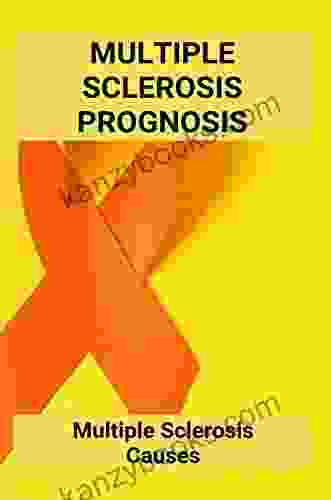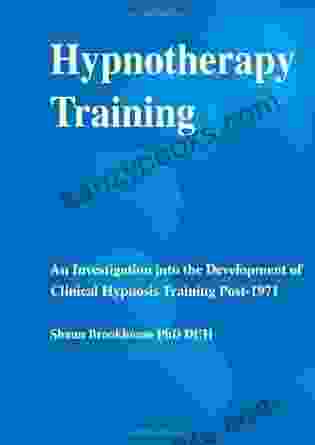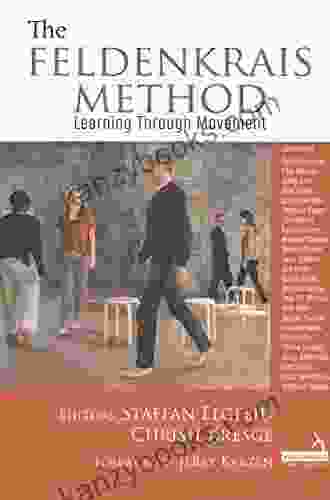Unlocking the Secrets of Clinical Hypnosis: A Comprehensive Exploration

5 out of 5
| Language | : | English |
| File size | : | 731 KB |
| Text-to-Speech | : | Enabled |
| Print length | : | 92 pages |
Welcome to the captivating world of clinical hypnosis, where the mind's hidden potential unfolds and the path to healing and transformation is unveiled. Embark on an in-depth journey into the development of clinical hypnosis training post 1971, delving into the origins, evolution, and current state of this transformative therapeutic approach.
The Origins of Clinical Hypnosis
The roots of clinical hypnosis can be traced back to ancient practices of trance and suggestion. In the 19th century, Franz Mesmer, a Viennese physician, popularized the concept of "animal magnetism," which laid the foundation for the development of hypnosis as a therapeutic tool.
The Evolution of Clinical Hypnosis Training
In the early 20th century, hypnosis gained prominence in medical and psychological circles. However, the lack of standardized training and regulation led to inconsistencies in practice and raised concerns about its efficacy. In 1958, the American Society of Clinical Hypnosis (ASCH) was founded, setting the stage for the development of formal training programs and ethical guidelines.
The year 1971 marked a significant turning point in the history of clinical hypnosis training. The publication of "Hypnosis and Behavioral Change" by Ernest Rossi and Katherine Sheehan challenged the traditional hypnotic induction methods and introduced new approaches that emphasized the client's active involvement and conscious participation.
Post-1971 Developments in Clinical Hypnosis Training
Post 1971, clinical hypnosis training underwent a series of significant developments, including:
- Integration of Cognitive-Behavioral Techniques: Hypnosis was increasingly combined with cognitive-behavioral therapy (CBT) techniques, resulting in a more comprehensive and evidence-based approach to treatment.
- Focus on Client Empowerment: Training programs shifted towards empowering clients to actively participate in their own healing process, fostering self-awareness and self-direction.
- Development of Specialized Training Programs: Specialized training programs were developed for specific applications of clinical hypnosis, such as pain management, anxiety reduction, and trauma therapy.
The Current State of Clinical Hypnosis Training
Today, clinical hypnosis training is recognized as an essential component of the education of mental health professionals. Accredited training programs are offered by various organizations, including ASCH, the National Guild of Hypnotists (NGH),and the American Psychological Association (APA).
Contemporary clinical hypnosis training incorporates the latest research findings and best practices, ensuring that practitioners are equipped with the skills and knowledge to provide safe, effective, and evidence-based interventions.
Empowering Professionals with Clinical Hypnosis
Clinical hypnosis training empowers professionals with the ability to:
- Enhance therapeutic outcomes: Hypnosis can deepen relaxation, improve focus, and facilitate access to subconscious patterns, enhancing the effectiveness of various therapies.
- Reduce symptoms: Hypnosis has been shown to be effective in reducing anxiety, depression, pain, and other symptoms.
- Promote self-discovery and healing: Hypnosis can help clients uncover underlying beliefs, emotions, and experiences that contribute to their challenges, fostering self-awareness and empowering them to make positive changes.
Unlock Your Potential with Clinical Hypnosis Training
Embark on the transformative journey of clinical hypnosis training and unlock your potential to empower clients and facilitate profound healing. With its rich history, evidence-based foundation, and contemporary advancements, clinical hypnosis offers a powerful tool for professionals seeking to expand their therapeutic repertoire and make a lasting impact on the lives of their clients.
Call to Action:
Join the ranks of skilled and compassionate professionals by enrolling in an accredited clinical hypnosis training program. Invest in your professional development and empower yourself to unlock the transformative power of the mind.
5 out of 5
| Language | : | English |
| File size | : | 731 KB |
| Text-to-Speech | : | Enabled |
| Print length | : | 92 pages |
Do you want to contribute by writing guest posts on this blog?
Please contact us and send us a resume of previous articles that you have written.
 Book
Book Novel
Novel Page
Page Chapter
Chapter Text
Text Story
Story Genre
Genre Reader
Reader Library
Library Paperback
Paperback E-book
E-book Magazine
Magazine Newspaper
Newspaper Paragraph
Paragraph Sentence
Sentence Bookmark
Bookmark Shelf
Shelf Glossary
Glossary Bibliography
Bibliography Foreword
Foreword Preface
Preface Synopsis
Synopsis Annotation
Annotation Footnote
Footnote Manuscript
Manuscript Scroll
Scroll Codex
Codex Tome
Tome Bestseller
Bestseller Classics
Classics Library card
Library card Narrative
Narrative Biography
Biography Autobiography
Autobiography Memoir
Memoir Reference
Reference Encyclopedia
Encyclopedia Trisha Day
Trisha Day Vanessa Barrington
Vanessa Barrington Siddharth Borad
Siddharth Borad Stephen Blauer
Stephen Blauer Llewellyn Vaughan Lee
Llewellyn Vaughan Lee Stephanie L Tourles
Stephanie L Tourles Tim Hwang
Tim Hwang Stephen Elkins
Stephen Elkins Verona Jackson
Verona Jackson Sonja Overhiser
Sonja Overhiser Yogi Ramacharaka
Yogi Ramacharaka Tammy Nelson
Tammy Nelson Sarah Meyers
Sarah Meyers Sarah Stewart
Sarah Stewart Sonja Schoch
Sonja Schoch Mennlay Golokeh Aggrey
Mennlay Golokeh Aggrey Shanika Graham White
Shanika Graham White Stacy Rae
Stacy Rae Jennifer Donnelly
Jennifer Donnelly Barry Bryant
Barry Bryant
Light bulbAdvertise smarter! Our strategic ad space ensures maximum exposure. Reserve your spot today!

 Clark CampbellExplore the Untamed Wilderness with the Northeastern Minnesota All Outdoors...
Clark CampbellExplore the Untamed Wilderness with the Northeastern Minnesota All Outdoors... Ira CoxFollow ·12.8k
Ira CoxFollow ·12.8k Colt SimmonsFollow ·6.3k
Colt SimmonsFollow ·6.3k Richard WrightFollow ·7.9k
Richard WrightFollow ·7.9k Edward BellFollow ·16.9k
Edward BellFollow ·16.9k Michael SimmonsFollow ·4.8k
Michael SimmonsFollow ·4.8k Harry CookFollow ·7.5k
Harry CookFollow ·7.5k John KeatsFollow ·7.8k
John KeatsFollow ·7.8k Thomas HardyFollow ·4.9k
Thomas HardyFollow ·4.9k

 Virginia Woolf
Virginia WoolfGetting High Fat Diet Easily Using Keto Fat Bomb Cookbook
Unveiling the Power of Fat...

 Milan Kundera
Milan KunderaAre You Cryin' Brian? Find the Inspiration and Humor in...
Life can be full of...

 Edmund Hayes
Edmund HayesUnlock Your Vitality: The 15-Day Natural Energy Boost...
Are You Ready to...

 Gavin Mitchell
Gavin MitchellMultiple Sclerosis Life Expectancy: Unveiling the Impact...
Multiple Sclerosis (MS) is a...

 Gabriel Garcia Marquez
Gabriel Garcia MarquezGet The Thighs That Can Crack Man Head Like Walnut
Are you tired of weak, flabby...
5 out of 5
| Language | : | English |
| File size | : | 731 KB |
| Text-to-Speech | : | Enabled |
| Print length | : | 92 pages |










